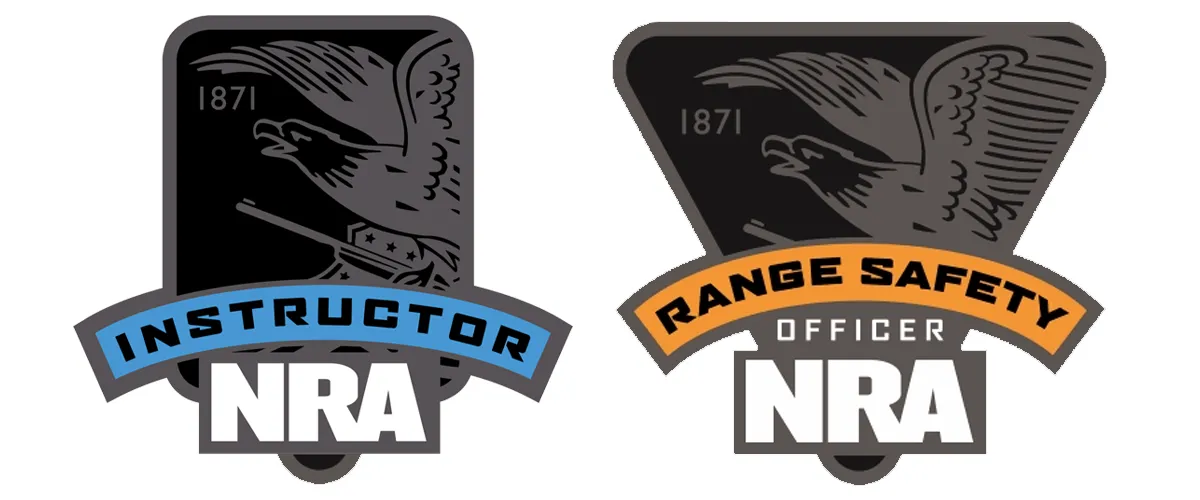
FIREARMS TRAINING
WITH YOUR PEACE IN MIND
FIREARMS SAFETY & INSTRUCTION COURSES

ETA Firearms is your go-to choice for gun safety classes in Arizona. We also educate for concealed weapon permits, tactical training and more.
Firearms safety courses teach important safety practices and procedures to help prevent accidents and injuries when handling firearms. Being knowledgeable and trained in safe handling techniques can help reduce the risk of accidental discharges and injuries to yourself and others.
NRA CERTIFIED INSTRUCTORS
USCCA CERTIFIED INSTRUCTORS
WOMEN INSPIRED COURSES
ACTIVE SHOOTER TRAINING
FIRST AID COURSES
CONCEALED CARRY WEAPONS
REAL ESTATE AGENT SAFETY
LED CLASSES
It's not only about the novelty of shooting or owning a "gun". It's about our obligation to protect and freely exercise our 2nd Amendment right. We offer a variety of courses created by licensed instructors that teach respect, safety, responsibility and the legal requirements necessary to own and possess a personal firearm in Arizona.



OUR TRAINING COURSES & CLASSES
Taking a firearms safety course is an important step in being a responsible firearms owner and protecting your assets, yourself, and others. It can help you develop the knowledge, skills, and mindset necessary to safely and confidently handle firearms in a variety of situations.
NEW GUN OWNER TRAINING PROGRAM
1:1 & GROUP TRAINING AVAILABLE
SPECIALTY CLASSES & COMBO COURSES
WOMEN ONLY COURSES
CUSTOM CREATED COURSES & GROUPS
Schedule a free consultation here:
Stay Informed Through our Blog

Data Security Best Practices: Safeguarding Sensitive Information in Religious and Business Databases

As organizations—both religious and commercial—manage sensitive information, data security becomes paramount. Protecting this information not only safeguards the privacy of individuals but also maintains trust and integrity within the community. Here are essential best practices for securing sensitive data in databases.
1. Data Classification
- Identify Sensitive Information: Categorize data based on its sensitivity, such as personal identifiable information (PII), financial records, and confidential communications.
- Access Control: Implement strict access controls based on data classification. Ensure only authorized personnel can access sensitive information.
2. Strong Authentication Measures
- Multi-Factor Authentication (MFA): Require MFA for all users accessing databases to add an extra layer of security.
- Regular Password Updates: Enforce policies that require regular password changes and the use of strong, unique passwords.
3. Encryption
- Data-at-Rest Encryption: Encrypt sensitive data stored in databases to protect it from unauthorized access.
- Data-in-Transit Encryption: Use protocols like HTTPS and TLS to encrypt data transmitted over networks, ensuring its confidentiality during transfer.
4. Regular Software Updates and Patching
- Keep Systems Updated: Regularly update database management systems and software to protect against vulnerabilities.
- Patch Management: Implement a patch management strategy to ensure timely updates for security vulnerabilities.
5. Regular Backups
- Automated Backups: Schedule regular automated backups of databases to prevent data loss in case of incidents such as cyberattacks or hardware failures.
- Secure Backup Storage: Store backups in secure, off-site locations and ensure they are also encrypted.
6. Monitoring and Auditing
- Activity Monitoring: Implement logging and monitoring tools to track access and changes to sensitive data.
- Regular Audits: Conduct regular security audits to identify potential vulnerabilities and ensure compliance with data protection policies.
7. Employee Training and Awareness
- Security Training Programs: Provide regular training for employees on data security best practices, including phishing awareness and safe data handling.
- Incident Reporting Procedures: Educate staff on how to recognize and report security incidents promptly.
8. Implementing Policies and Procedures
- Data Protection Policies: Develop and enforce clear policies regarding data handling, access, and sharing to ensure everyone understands their responsibilities.
- Incident Response Plan: Create a plan for responding to data breaches, including identification, containment, and communication strategies.
9. Physical Security Measures
- Secure Access to Facilities: Ensure that physical access to servers and data storage areas is restricted to authorized personnel only.
- Surveillance and Monitoring: Utilize security cameras and access controls to monitor physical access to sensitive information.
10. Compliance with Regulations
- Understand Legal Obligations: Stay informed about relevant data protection laws and regulations, such as GDPR or HIPAA, and ensure compliance.
- Regular Reviews: Periodically review compliance measures and update policies to align with evolving regulations.
Implementing robust data security practices is crucial for protecting sensitive information in both religious and business databases. By following these best practices, organizations can significantly reduce the risk of data breaches, maintain the trust of their communities, and ensure the integrity of their operations. Prioritizing data security not only protects individuals but also reinforces the organization’s commitment to ethical and responsible stewardship of information.
Monday through Sunday
By appointment only
Copyright © 2024 E.T.A. FIREARMS | All Rights Reserved





